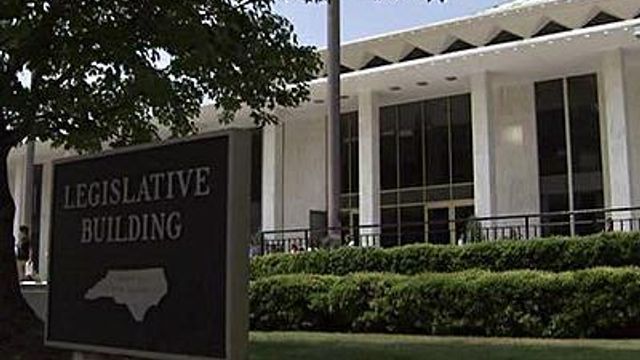Lawmakers primed to meet budget deadline
After hammering out an agreement over the weekend, the House and Senate were prepared to approve the 2010-11 state budget before the new fiscal year begins Thursday.
Posted — UpdatedLawmakers were expected to review the final draft of the $19 billion budget Monday afternoon before reading it into the record, which would allow the required votes to take place Tuesday and Wednesday. If approved by both chambers, the budget would then be sent to Gov. Beverly Perdue to be signed into law.
If the budget gets approved before Thursday, it would mark the first time since 2003 that a budget was passed on time. Last year's budget was passed on Aug. 5.
Budget negotiators worked well into the night late last week to settle the differences between the spending plans approved by the House and the Senate. A tuition break given to out-of-state athletes in the University of North Carolina system proved to be the most contentious issue, and House Speaker Joe Hackney and Senate President Pro Tempore Marc Basnight had to be called in to reach an agreement.
In the past, a waiver that treats out-of-state students on athletic scholarships like in-state students reduced the amount that university athletic booster clubs paid for the scholarships at cost of more than $9 million to taxpayers.
"It was a little hairy this year," said Rep. Mickey Michaux, D-Durham. "This sticking point, I think, was the scholarship situation. That got squared away, and in an hour or so, they were through."
The budget cuts spending by almost $800 million. Although lawmakers held the line on taxes, some fees – they haven't been made public yet – were increased to balance the budget.
"Everybody got a little something. Everybody lost a whole lot," Michaux said. "There will be some teachers lost, yes. A lot of those will be because of local situations, not necessarily because of what we did."
The two sides agreed to use excess lottery proceeds to protect school classrooms from cuts as much as possible. They also agreed not to cut state workers' pay or require them to take a furlough.
Other winners in the budget include the UNC system, which saw the amount of discretionary cuts needed at campuses lowered from about $139 million to $70 million; the mental health system, which had $40 million restored to its budget after cuts last year; and the new Mobility Fund, which will get $31 million a year to address transportation bottlenecks statewide, beginning with the Interstate 85 bridge over the Yadkin River at the Davidson-Rowan county line.
Losers included the Personal Care Services program, which saw $50 million cut from efforts to provide in-home aid to elderly and disabled people; and Perdue's attempt to introduce hand-held devices to help teachers in lower grades assess student performance, which received $10 million instead of the requested $39 million.
Lawmakers also prepared for the loss of about $500 million in federal economic stimulus money, which they had been counting on to fill holes in the budget. Congress removed the funding from a jobs bill several weeks ago, and observers said it was doubtful the money would be restored to the legislation.
To make up for the stimulus money, each state agency would have to absorb an additional 1 percent spending cut, which amounts to about $177 million. Another $37 million was to be pulled from the "rainy day" reserve fund, payments to the state pension fund would be reduced by $139 million, and state trust funds would be tapped to make up the remainder of the shortfall.
The rapid turnaround on the budget following Saturday's agreement prompted criticism from some Republicans that the budget was crafted by a few key lawmakers.
"If people say they truly don't know what's in the budget, I don't think they're being truthful to themselves. I think they know pretty much where we've been headed," said Sen. A.B. Swindell, D-Nash. "I think (the process has) been very transparent."
• Credits
Copyright 2024 by Capitol Broadcasting Company. All rights reserved. This material may not be published, broadcast, rewritten or redistributed.






